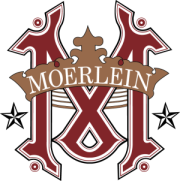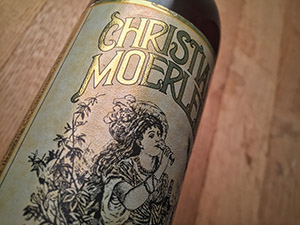When The Hudepohl Brewing Company became the first brewery in the United States to have a beer certified as “Reineheitsgebot Pure”, meeting the strict German purity law in 1981 It’s hard to remember (or picture) exactly what the beer landscape was like in Cincinnati, and in the country as a whole. You may not even realize how the brewery was one of the first in the country to really produce a “craft” beer… But that might be getting ahead of ourselves a little bit, let’s start a little, or actually a lot, farther back than 1981…
 Reineheitsgebot – Reineheitsge-What?
Reineheitsgebot – Reineheitsge-What?
The German purity law was actually a series of standards established in Germany. The most famous of these regulations was established in 1516 in Bavaria. The history of the law, and it’s reasons might be a bit too much for this post, but I might need to dig into that at some point in the future… The big point you need to know is that the law specified that all beer should be made from 3 ingredients:
- Water
- Hops
- Barley
- Yeast (This was added once they figured out that yeast, and not magic was fermenting their beloved beer)
It goes without saying that in the United States in the late 70s and early 80s, the beer landscape was littered with bland, boring, adjunct filled lagers (we are still battling to work our way back from this wasteland.) But within that beer wasteland there was a movement starting. There were people and breweries that knew that things could be done differently and that with a little push the entire beer landscape could change for the better.
 ReDefining Beer in the 80s
ReDefining Beer in the 80s
In 1981 Hudepohl changed things up a bit. They released Christian Moerlein Select Lager, which not only brought back a long lost brand with Cincinnati’s famed Christian Moerlein, which had essentially been lost since prohibition era, but brought back beer that has more too it that bunch of adjuncts, to lessen flavor and body.
Christian Moerlein Select Lager was around 5.4% and was a Munich-Style Helles Lager. A light, easy drinking lager that pushed the boundaries of what drinkers were used to… but not as far as to turn them off… This beer had flavor that people weren’t used to. It was a beer for a city that had started to lose it’s “beer soul”, and bring people back to what made beer special in the first place. See… the Rineheitsgebot isn’t about ‘limiting’ what you can do with beer… it’s about respecting what beer is, and what it was supposed to be. In 1981, beer was slowly dying, because the mass majority of people had forgotten. They didn’t know better.
I’m not sure that the beer was as appreciated then for what it represented as it might be today… Which makes the whole end of this past the really good stuff.
Celebrating 500 Years and 35 Years at the same time.
If you are good at math, or if you were listening to the last episode of Cincy Brewcast, you’ll be aware that 2016 marks the 500th anniversary of the Bavarian Reineheitsgebot. Christian Moerlein is marking a celebration of the occasion by re-releasing a version of their Select Lager. This year marks the 35th anniversary of the first time that Hudepohl tried to do something different. I can only hope that this city is able to respect what this beer stands for better than most people were able to do back in 1981… Education is part of what has made the craft beer movement as successful as it is, so my hopes are high. The heritage brands of The Christian Moerlein Brewing Company aren’t just about the beer that you pour into your glass… they are about something else here in Cincinnati. This city has a soul that was almost lost. This soul is forever respected and carried on by the brewery in a way that so few craft breweries would be able to do in today’s fast changing “beer world”.
As more details comes out about this beer, I’ll be sure to let you know about them… Until then, Be Gnarly and Drink Local!

Do we know what beers by Moerlein subscribe to this standard? Or is it across the board for the brand?
As far as which ones do today… that’s a great question. I would have to double check with the brewery, but I would assume most of them do. There are obvious ones that don’t if they have additions of fruit or similar adjuncts. As far as their Heritage Brands go, I know for a fact that the new ‘Pure Lager’ would be Rineheitsgebot pure and I’m fairly certain that the Burger products don’t use adjuncts either… but I’m not 100% certain.
It’s most certainly not across the board for the brand, though. Adjuncts have become a commonality in beer, with anything from fruit to spices being used in quite a few craft beers, Moerlein included.
Hope that helps answer the question.